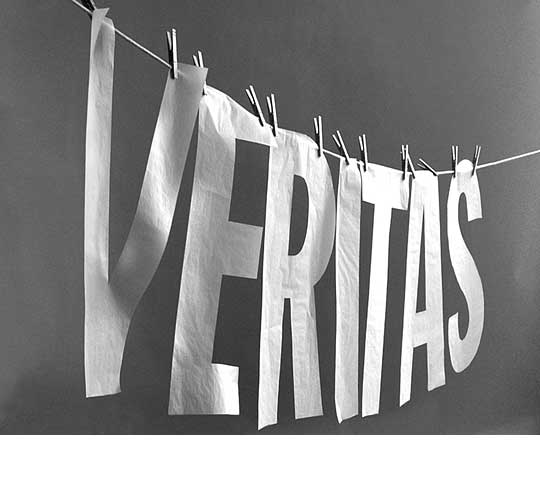Q: How do I know postmodernism when I see it? What are its distinctives?
I don’t think the full answer to that question fits on a one-page blog, but something can still be said. Here is description of a few things in the postmodern family tree:
Authority:
Jerram Barrs said, “The most widely held view on anything in the
Authority is a dirty word in a postmodern culture. It is a coin that has a diminishing value. The individual has a transcendent power; he is an authority to himself. The idea that the individual is bounded by things greater than himself is an idea that, at best, our generation does not understand, and, at worst, infuriates a postmodern culture.
I was watching a Mizzou football game recently (
Truth:
Modernism understood truth as black and white; something which, ultimately, could be clearly understood. It believed in the power of reason to have access to those truths… not that it would always be easy, but it was possible. Or to put it in an image: imagine there are two ropes, one that represents truth and the other that represents our ability to know. Modernism tied those two ropes together. Postmodernism, however, has tried to untie that knot and throw the two ropes as far away from each other as it can.
Postmodernism says that we are too shaped by subjective factors (where we grew up, what our parents taught us, our own biases and tastes and agendas) to be able to see things clearly. It is like smearing mud on a window and then expecting to be able to see out through it. We cannot escape this subjectivity ever; it is part of the human condition. Thus there is always, in everything we try to know, interference involved in the process to the degree that postmodernism says we cannot know anything with certainty.
Morality:
What postmodernism has concluded about morality flows out of its conclusions about authority and truth. If there is nothing above us, then morality is up for grabs. If we cannot understand things with certainty even if there was an authority above us, then we must run on our best moral guesses, and one person’s guess does not have authority over anyone else’s. Morality is a matter of personal choice. Morally, each person is an island.
I remember a conversation with a friend in which he said that he would correct his children’s choices about their lives while they lived in his house, but he would never dream of doing that with another person. It was a horrifying thought to him to think that he could look at another person’s life and say what in it was good and what was bad. It was the most unloving thing you could do.
Judgment and condemnation are dirty words in a postmodern culture. The great evil is not falsehood, but judgment. The great good is not truth, but harmony.
This is by no means a complete rendering of postmodernism. I chose these three things because they are three places where our culture contrasts sharply with Christianity. I don’t want to paint the picture of postmodernism as being all bad, however. There is both good and bad in every one of us and so it follows that the cultures we create are streaked with both light and dark also. In the next post I hope to point out some of these strengths of postmodernism as well as talk about how Christianity must respond to those places where postmodernism runs false.



